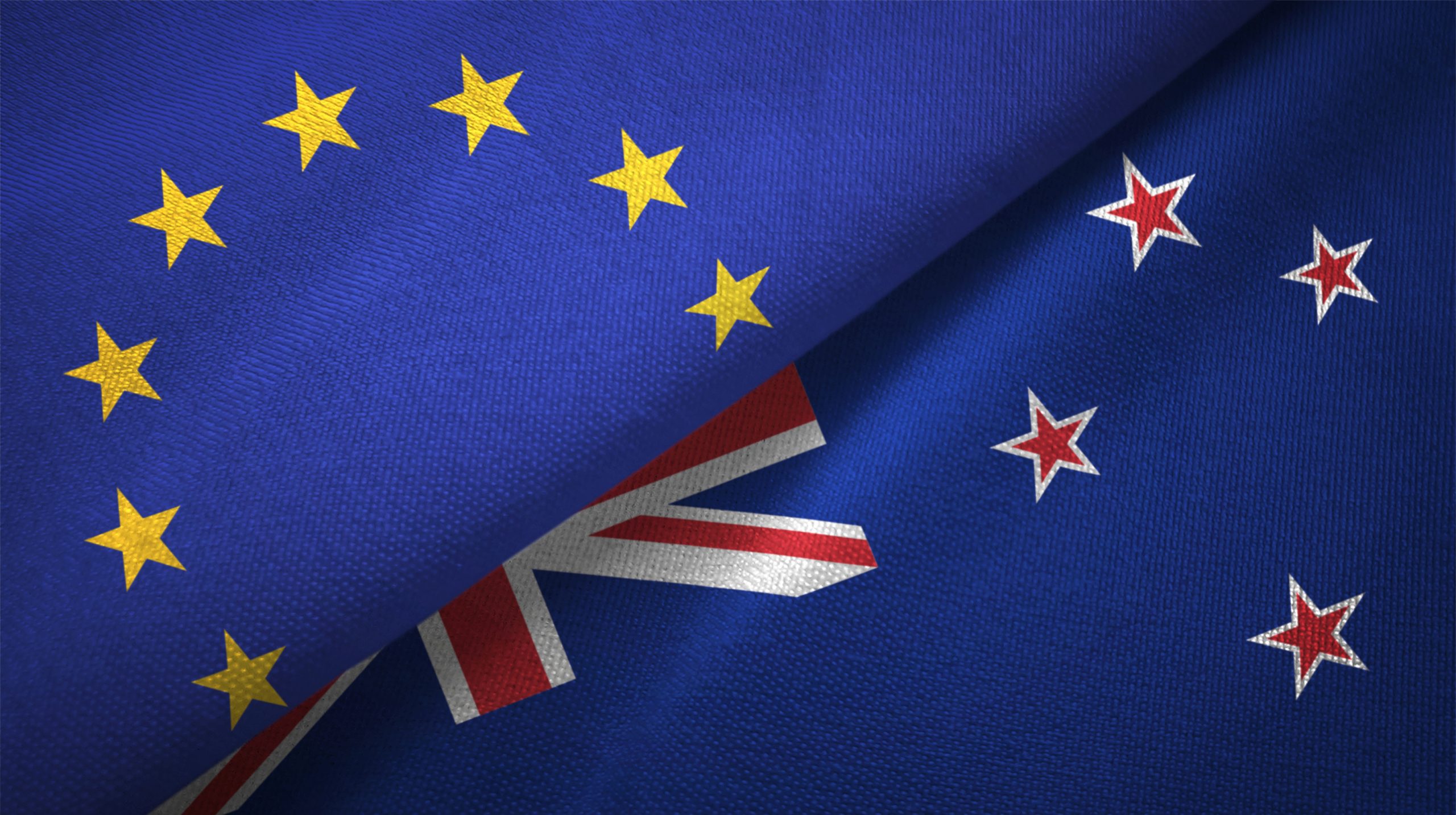
14 Jul European Union and New Zealand Sign Trade Agreement
In a significant development for international trade, the European Union (EU) and New Zealand recently finalized a comprehensive free trade agreement. The agreement, signed on Monday, is expected to foster economic growth and strengthen bilateral ties between the two regions. Both parties anticipate a substantial boost in trade volume, with projections suggesting an increase of up to 30% within the next ten years. This article delves into the details of the agreement, highlighting its potential benefits for New Zealand and the EU.
Increased Export Opportunities for New Zealand
New Zealand stands to gain significantly from this historic trade agreement, with projected annual exports to the EU estimated to reach 1.8 billion New Zealand dollars (approximately $1.1 billion or €1 billion). The deal, which took five years to negotiate, is set to eliminate duties amounting to NZ$248 million ($153 million or €140 million) per year, according to a statement released by the European Commission. This removal of trade barriers will create favorable conditions for New Zealand businesses, allowing them to expand their presence in the lucrative European market.
Tariff Reduction and Market Access
A key aspect of the agreement is the gradual reduction of tariffs on New Zealand’s goods exported to the EU. Initially, duties will be removed on 91% of New Zealand’s exports, and this figure is expected to rise to 97% within seven years. The phased elimination of tariffs will significantly enhance market access for New Zealand products, enabling a wider range of industries to benefit from the trade agreement. This is particularly promising for sectors such as agriculture, dairy, wine, and forestry, which are vital to New Zealand’s economy.
EU’s Indo-Pacific Partnership
Highlighting the strategic importance of New Zealand as a partner in the Indo-Pacific region, European Commission President Ursula von der Leyen emphasized the significance of this free trade agreement. With the aim of bringing the two regions closer together, President von der Leyen hailed the agreement as a crucial step towards fostering stronger ties and capitalizing on shared economic opportunities. The EU’s commitment to deepening partnerships in the Indo-Pacific reflects the region’s increasing economic significance and potential for growth.
Legislative Ratification and Future Prospects
Although the free trade agreement has been signed, it is yet to be ratified by the parliaments of both New Zealand and the EU. Once ratified, the agreement will come into effect, marking the beginning of a new era of trade cooperation. This landmark agreement between New Zealand and the EU demonstrates a commitment to open markets, economic integration, and the benefits of globalization.
The free trade agreement between the European Union and New Zealand represents a significant milestone in strengthening economic ties between the two regions. By eliminating tariffs and facilitating market access, the agreement opens up new avenues for trade and commerce. New Zealand’s exporters stand to benefit from expanded opportunities in the EU, while the European market gains access to high-quality New Zealand goods. As both parties move forward with the ratification process, the agreement sets a positive precedent for future trade agreements and reinforces the importance of international cooperation in fostering economic growth and prosperity.
When it comes to navigating the ever-evolving landscape of international trade, having a reliable and experienced partner by your side is crucial. Future Forwarding is your trusted ally in the world of shipping, offering a wide range of services tailored to meet your specific needs. With our expertise, global network, and commitment to exceptional customer service, we ensure that your goods are transported efficiently and securely to their destination. Reach out to us today to find out more.




Sorry, the comment form is closed at this time.